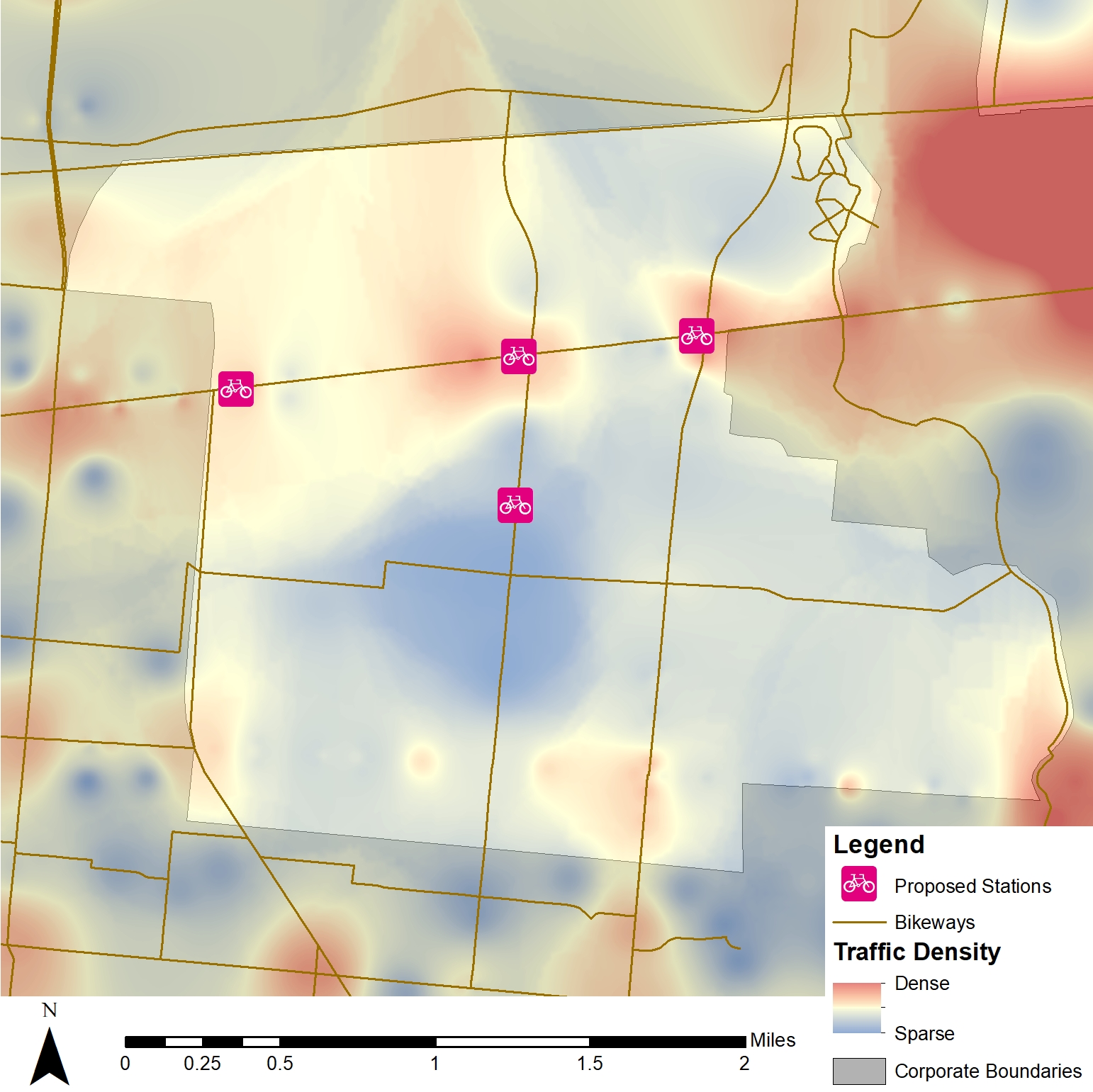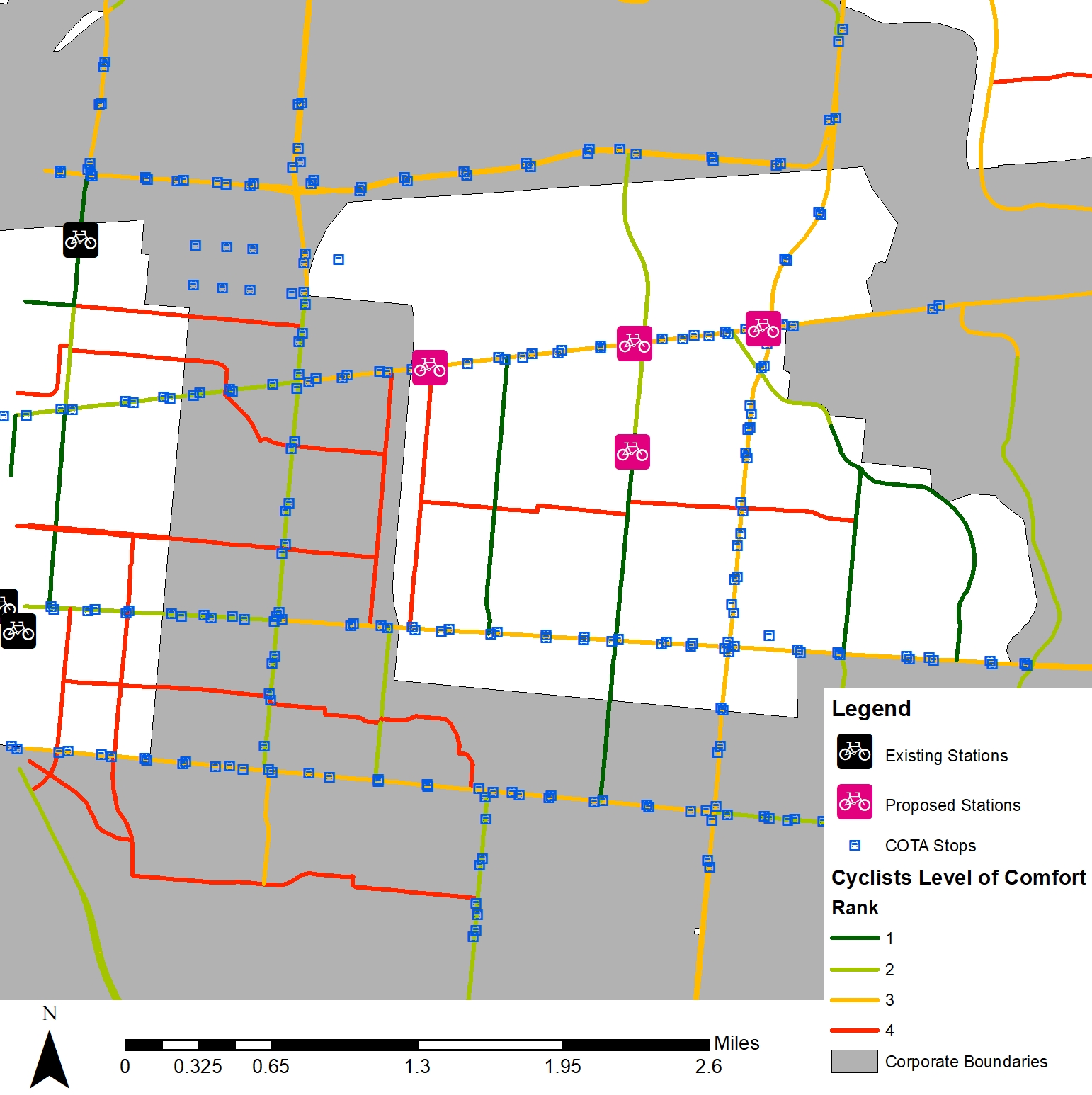Since 1965, bikeshare systems have become popular in many cities around the world as a means of reducing congestion, reducing air pollution, increasing air quality, and offering a healthy, active mobility option for local users. In the scope of transportation projects, bikeshare systems are relatively easy to create and expand due to their low cost and simple installation. With the potential to increase foot traffic for commercial activity while reducing vehicular congestion, this sustainable transportation option is a triple-win if implemented properly.
COGO is a bikeshare system available in Columbus in multiple locations. With current plans to extend into Bexley, Whitehall stands as a potential area to add to the system. Locating where the stations should be implemented is a key component of the system's success; COGO stations may be best suited for areas in Whitehall that have three qualities: existing foot traffic and activity, proximity to alternative transit stations, and along bike-friendly roadways or bike lanes when possible. Below are some recommendations for locations based on these features.
Recommended Locations


These sites are largely based on the Broad street corridor. As a means to introduce Whitehall to the COGO bikeshare system, these stations may be the most effective firstly as circulators, and secondly as a commute option between municipalities.
Kroger on Broad Street
This location conveniently is near a bus stop, several amenities including a grocery store, a large parking lot, and is the closest recommendation to the existing COGO system.
Broad Street and Yearling
At this intersection, a church, a Columbus Metropolitan Library, COTA Park and Ride including a bus stop, and a renovated street, Yearling Road, that is comfortable for many cyclists.
Hamilton and Broad
Located at the far west end of Whitehall, a station located here could provide access to numerous bus stops, commercial amenities, recreation, and residential neighborhoods, making this station a hub of activity.
City Hall
Centrally located in Whitehall, this station can provide access to Public Office resources, the Police Department and Fire Division, and most importantly, central residential neighborhoods.
Goal
With an expansion of COGO into Whitehall, the city should expect to see new interest in bicycle ridership and less congestion as commuters begin to make this switch. With time and effort starting with COGO stations, Whitehall can become a multimodal hub of the eastern Columbus metropolitan area for commerce and activity.
Strategies
This project may be phased, but considering the relative ease of installation, this should be limited. Initially, a survey should be conducted to obtain information about potential users such as if they would change the locations based on unknown factors or if they prefer other changes. If one station is to be tested, it should be at the far west end to connect to the existing system, although this may not serve the needs of potential users without installing a second location within Whitehall for pick-up and drop-off.
The system can also be expanded beyond the recommendations made here. Depending on rider data, stations can be added in underserved areas to create a more dense network that adds to the convenience of using the system.
Examples
Explore the videos below for some inspiration:
Connection to Other Plans
This idea potentially addresses the following elements of the MORPC Regional Sustainability Agenda:
| Element | Description | Rationale |
|---|---|---|
| 1.1 | Reduce vehicle miles traveled (VMT). | Bikesharing can decreace vehicles as a transportation mode choice. |
| 1.2 | Reduce the percentage of commuters driving alone and increase the percentage of commuters riding transit, biking, or walking. | Bikesharing stations can increase visibility of biking and increase its popularity. |
| 1.6 | Reduce per capita energy consumption across all sectors. | As an energy-efficient form of transportation, biking reduces total energy consumption. |
| 2.1 | Reduce emissions to meet federal air quality standards. | As a non-polluting form of transportation, bicycling reduces total greenhouse gas emissions. |
| 4.4 | Target transit and bikeway infrastructure development to serve a higher number of people. | Bikeshare station construction directly implements bikeway infrastructure for more people. |
